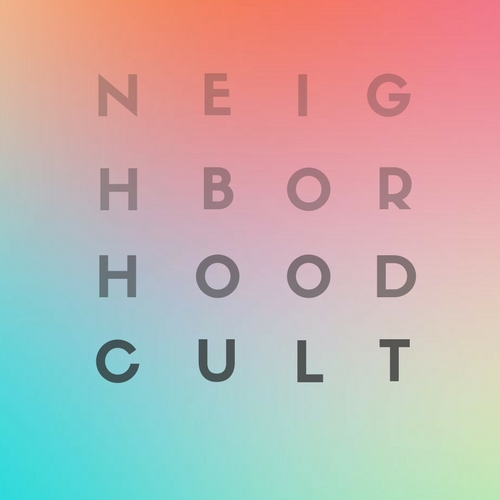ON REVIEW: CASS MCCOMBS AT THREE LINKS
September 21, 2016
Wednesday night, September 21st, Three Links garage style venue was clocked up with an unfortunate host of my past and present lovers, the debris of sexual tension and bad relationships awkwardly bumping into one another, averting eyes and words, to see Cass McCombs perform. Deep Ellum’s self-proclaimed “neighborhood bar” had brought all the local kids into a cozy, shoulder to shoulder setting, bud light drunk and waiting to hear McCombs sweet lulls, touring his 9th and debut album on ANTI-Records, Mangy Love.
The venue’s punk roots and intimate backdrop followed the line of spaces McCombs preferred to perform in, throwing back to the DIY territory he had traversed since the late 90’s. He is an artist who is revered for his songwriting abilities, prolific output of work, the authenticity of his artist-media interactions and the mystique that surrounds him through his carefully elicited personae. McCombs and crew announced themselves on stage, casually dressed in shades of black grubbed up attire, arriving as naturally as if they were about to sit down and have a beer after band practice. The experience of attending his show was an unique one, in that the energy between audience and artist is both organic and with boundary. He opened with the sparse beauty of Angel Olson (not present) featured “Opposite House,” a Mangy Love track that felt like a surrealist elevator music encounter. When he crooned an echoing “Does it rain inside?” tapping his worn in vans to the stage and throwing looks towards his bassist, a doting audience swayed back and forth.
Mangy Love is McCombs most cohesively political album to date, abstractly addressing dark subject matter like police brutality, politics, gender issues, and the dichotomy of how our society is at its dually most engaged and disengaged. After “Opposite House” long sling of a synth off, it lead into “Bum Bum Bum”, a track with uncomfortable lyrical descriptions of the running congealed blood and the redundancy of a normalized horror “bum bum bum” suggestive of America’s issue with police brutality on black lives. Yet McCombs is intentionally poetic enough to not let his listeners pin down exactly what story his lyrics are telling, as if he's stepping back from becoming the next folk hero who stands out with his "obviousness". Other tracks off the new record, like “Run Sister Run,” a jaunty speed riff and the punched down, evolved psychedelic monotone of “Medusa’s Outhouse” ran the gamut of emotional subject matter but for this crowd, it was like being guided through an old country road. McCombs posed as the alternative to the reactionary social media soapbox, leading the audience through trailing, vision induced monologues that lie in the belly of the tracks. He stirred the tough questions, but acted as a vessel to point his fans in the right direction, and that direction was not at him, it was at the world around us. In the middle of the set, “Lowflying Bird” offered somewhat of a reprieve in the form of a lighthearted smeared come down. The guitar and piano ebbed and flowed, rising and falling like its namesake, leaving us feeling like we were along for the ride. Despite being known for his songwriting abilities, his live performance geared more to the landscapes of sound he created.
The detachment in McCombs live conduct appeared to be more about a sincere removal of ego, rather than the often seen presentation of faux superiority in the live performances of some artists. “Cry”, another track played off Mangy Love showcased the offhanded humor McCombs has with the line “Netflix or die, go on and cry”, with him smirking at the crowd before swooping into deadened Beat infused soliloquies, slow and passively pleading that we are “lost in bad poetry, lost in logic, lost in a racist, bourgeois town”. At a time when our next president could be Donald Trump and reports of gun violence and police brutality are responded to with a shrug and not a flinch, his latest album and songwriting came into sharp focus. The times may be why McCombs began to recently open up to reporters, stating to one journalist that this album was not about himself. And he’s right. Just like his performance, McCombs allowed his songs and subject matter to take center stage, as if to say “don’t pay attention to me, pay attention to this” in an effort to spark dialogue and feel something, if anything, that is not just the stated numbing affect of Netflix.
Big Wheel and Others tracks like “Brighter” and “Angel Blood” were dispersed throughout the set, and to an engaged excitement “Bobby, King of Boys Town” was played in addition. The A track set a lighthearted tone to the night along with Urban Outfitter favorite “Dreams Come True Girl”, which remained just as strong even without the assistance of Karen Black, with McCombs deep diving guitar work accenting the ending. Slow cooked send offs rounded out each track that were part jazz and part trippy scruff. The set included standout tracks “County Line” and the bone dry sweetness of “You Saved My Life,” with the ending grating beautifully as Cass gave a few chunky riffs before wiping the sweat off his brow and leaving the stage.
